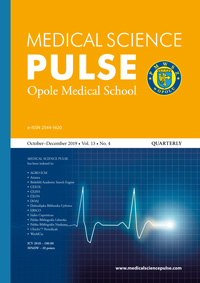Co-presence of a family doctor and psychologist in the management of patients with psychosocial and somatic symptom disorders
Co-presence of a family doctor and psychologist in the management of patients with psychosocial and somatic symptom disorders
Author(s): Rosario Falanga, Lisa PillotSubject(s): Health and medicine and law
Published by: Państwowa Medyczna Wyższa Szkoła Zawodowa w Opolu
Keywords: family medicine psychology; psychosocial distress; functional somatic symptoms; biopsychosocial treatment
Summary/Abstract: Background: Patients often seek out the help of general practitioners for problems that need a holistic, biopsychosocial approach. Having a psychologist present to support the GP in treatment allows for a more complete response to the patient’s distress, which is aided by the integration of the two specialists’ areas of expertise. Aim of the study: The aims of the study were to ensure all patients had direct access to a psychologist during treatment, even if they had not put in a specific request for one, to take care of accidental crises in real time, to reduce spending on inappropriate pharmaceutical prescriptions and diagnostic examinations, and to facilitate health promotion. Material and methods: The experiment took place between January 2014 and December 2015, in Pordenone, Italy. The psychologist was present in the GP practice every Thursday. The psychologist was present to provide consultation for each person who went to the GP practice for treatment. The study also explored the significance of any request, the psychological framework of the observed situations, and included an additional meeting with the psychologist in the GP practice, for individual interviews. Results: Of about 1,300 consultations with both the psychologist and GP present, the majority of the patients accepted the psychologist’s presence favorably. The most frequent source of discomfort for patients related to the grieving process during separation from people to whom the individual has a strong emotional attachment. 30 patients (6 males, 24 females) took part in individual follow-up meetings, 5 abandoned the project, 21 completed the full series of meetings, and 4 were sent to a mental health facility. Because of this holistic approach, spending on medical investigations was reduced by 6%, and the cost of pharmaceutical expenditure decreased by 10%. Conclusions: The joint medico-psychological treatment prevented, even at early stages, the appearance of somatic and psychic symptoms. This study has positively promoted health and well-being and shown that this type of treatment can help to limit expenses for pharmaceutical prescriptions and specialist diagnostic examinations.
Journal: Medical Science Pulse
- Issue Year: 13/2019
- Issue No: 4
- Page Range: 11-16
- Page Count: 6
- Language: English

